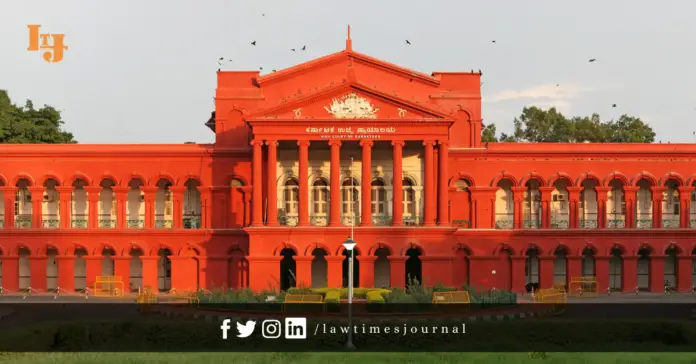
A Division Bench of Chief Justice Abhay Shreeniwas Oka and Justice Ashok S Kinagi of Karnataka High Court directed the State Authority under the Mental Health Act (MH Act) to convene a meeting to discuss further issues as soon as a non-official member is appointed.
Prior Facts:
The Court had recently pulled up the state government for failing to constitute the State Authority under the Mental Health Act (MH Act), despite the Court’s directions last month. The order was passed while dealing with a PIL that sought to implement the provisions of Mental Health Act, 2017 (MH Act). The Court in January had granted one month’s time to the state government to constitute the State Authority under the Act. The government had accepted the same but was yet submit it to the Central government. On that note, the Court directed the Centre to take appropriate action in terms of the draft rules within a period of one month.
In October last year, the court had found serious lacunae in implementing the Mental Healthcare Act, 2017, in terms of constituting the review boards as it has vast powers in enforcing the purpose of the law. The bench, at that time, had said that though the law prescribes holding of four meetings in a year, the state authority had not held a single meeting.
Key Features:
- The High Court noted that appointment of the non-official member had not yet been made, and consequently, the State Authority under the MH Act had not been properly set up.
- The Court highlighted that the State Authority had multiple important duties to discharge under the MH Act, some which included dealing with applications for registration of Mental Healthcare Establishments, conducting audits for such establishments, inspection of establishments etc.
- The Court further questioned the State on the point of the Mental Healthcare Fund under Section 62 of the MH Act.
- Section of 62 of the MH Act states that, A treatment otherwise restricted by sections 57 or 58 may be given to a detained patient without the need for consent or a second opinion, if it is necessary to save the patient’s life; or if it is reversible, to prevent serious deterioration of the patient’s condition; or if it is reversible and not hazardous, to prevent serious suffering to the patient, or to prevent the patient from behaving violently or being a danger to himself or to others.
- Without the said fund, the State Authority would be handicapped in terms of execution of its duties, the Court noted.
- The Court observed that the state would have to verify the same within a period of two weeks.
- In the meeting to be convened, the State Authority was further directed to immediately set in motion the procedure for registration of Mental Healthcare Establishments.
- The Court further noted that, “Take the Disaster Management Act, Mental Health Act. Without the direction of the Court, you (State) will not implement it.”
- It was further brought to the attention of the Court that the draft of the Karnataka State Mental Health Rules (Draft Rules) was formulated and submitted to the state government.
Judgement:
The Court questioned the State that, “How much time will you take to constitute Mental Health Review Boards? The provisions of the Act cannot be complied with if the Boards are not constituted. If someone is aggrieved under the Act, the only remedy available to them is to file a complaint with the Review Boards. You were supposed to do it (constitute review board) long back.”
The matter will be next heard on April 2.
Edited by J. Madonna Jephi
Approved & Published – Sakshi Raje








